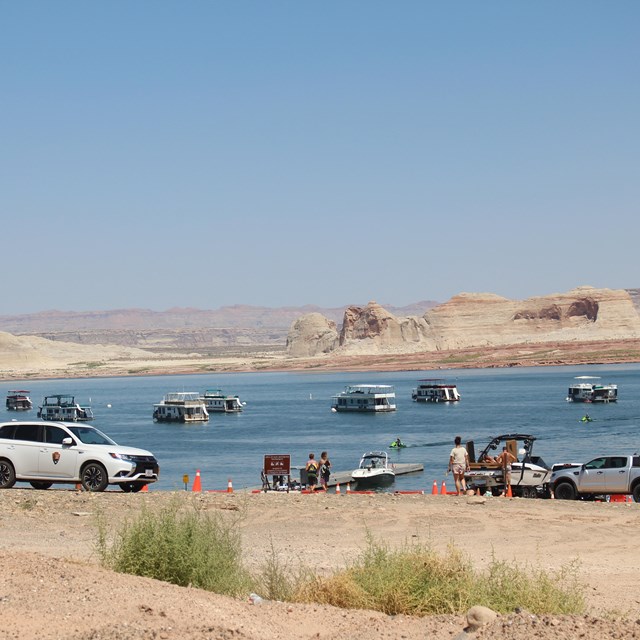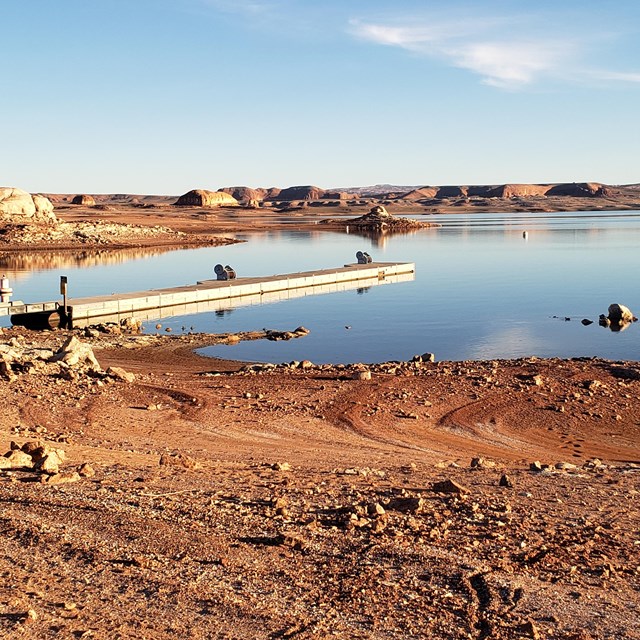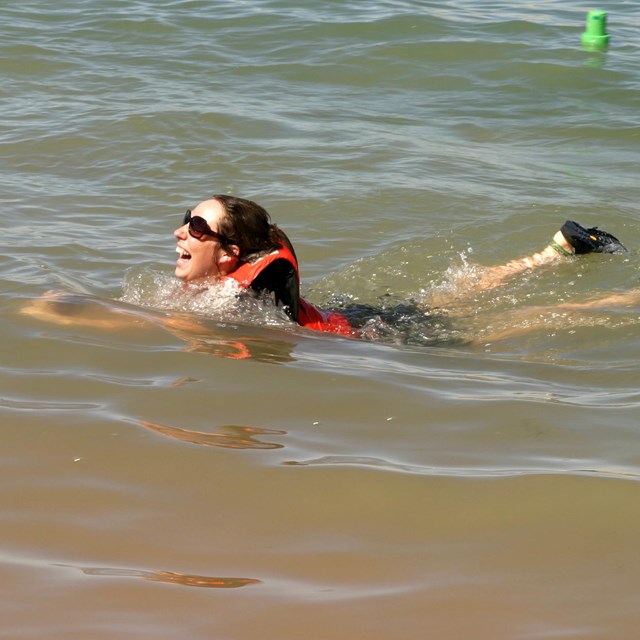
NPS Water Recreation Advisory
Anytime that you do recreational activities (swimming, water skiing, making sand castles, etc.) on the beaches or in the waters of Lake Powell you are strongly encouraged to follow basic hygiene practices:

NPS Be On The Watch For Signs of Harmful Algal BloomsWith warm summer water temperatures and plentiful nutrients from monsoonal storms there is a possibility that conditions leading to Harmful Algal Blooms (HABs) may develop. HABs occur when normally occurring cyanobacteria in the water multiply quickly to form visible colonies or blooms. These blooms sometimes produce potent cyanotoxins that pose serious health risks to humans and animals. Stay out of the water and avoid any contact with water or scums if you see pale-green or pea-green scum on or in the water and suspect a waterbody is experiencing a harmful algal bloom. Report potential harmful algal blooms by emailing glca_information@nps.gov with photos and gps coordinates.How to stay safe during HABs
July 2025 HAB questions and answersHarmful Algal Blooms (HABs) can form from blue-green algae that occurs naturally in waters across Arizona and Utah. At low levels, the algae is normally not a threat to human health. However, the algae can sometimes multiply rapidly to form blooms and scums on or below the water surface. Water that is warm, calm, and shallow is perfect for rapid algae growth into blooms. These blooms can concentrate cyanobacteria which produce toxins that affect human health. Nutrients which enter the park and lake from outside sources, such as nitrogen and phosphorus, encourage growth of algae and bacteria. It is difficult to prevent HABs when warm, calm, shallow water conditions occur in nature. Prevention can come in the form of reducing or controlling outside sources of nutrients, such as from stormwater runoff, agricultural runoff, stock yards, or water treatment discharges. At Lake Powell, prevention comes with the assistance of nature. Summer monsoons in the area provide thunderstorms and canyon water flows which help to mix lake water and flush canyons, dispersing harmful algae and bacteria into lower levels, often helping to prevent HABs. No additional restrictions are currently in effect. Glen Canyon National Recreation Area remains fully open for recreation, including for water activities on Lake Powell. Activities involving boats, kayaks, and other approved water devices are still ok. Other activities, such as fishing and swimming, are also ok across Lake Powell and its canyons, with an added caution to look at the water’s surface before you decide to swim, fish or allow your dog in the water. If you see a thin light green film or scum on the water’s surface, or just below the surface, it is best to choose a different water location on the lake to enjoy. This simple practice helps ensure you can enjoy the nature and grandeur of Lake Powell while remaining healthy. For those who wish to hike or ride and explore the land areas of the park, there is plenty of open space to enjoy scenery and wildlife. Our water quality monitoring methods include collecting water samples from algal blooms and using test strips to measure the level of cyanotoxins present. This approach confirmed the toxin microcystin is present in water samples taken from the algal bloom on the water's surface in Antelope Canyon. Drawing a water sample directly from an algal mass floating on the water surface showed a result of >10 ppb (i.e., the measure limit built into the test strips). Using the same water sample, but mixing before testing, the test result was ~7.5 ppb. In regard to swimming, the US EPA recommends a threshold of 8ppb in regard to a determination of concerns to human health. Since our data shows the level of the toxin microsystin is near or above the recommended threshold, Glen Canyon National Recreation Area advises visitors to use caution when recreating at locations in Lake Powell where Harmful Algal Blooms (HABs) occur. See the latest US EPA information.
|
Last updated: December 8, 2025



